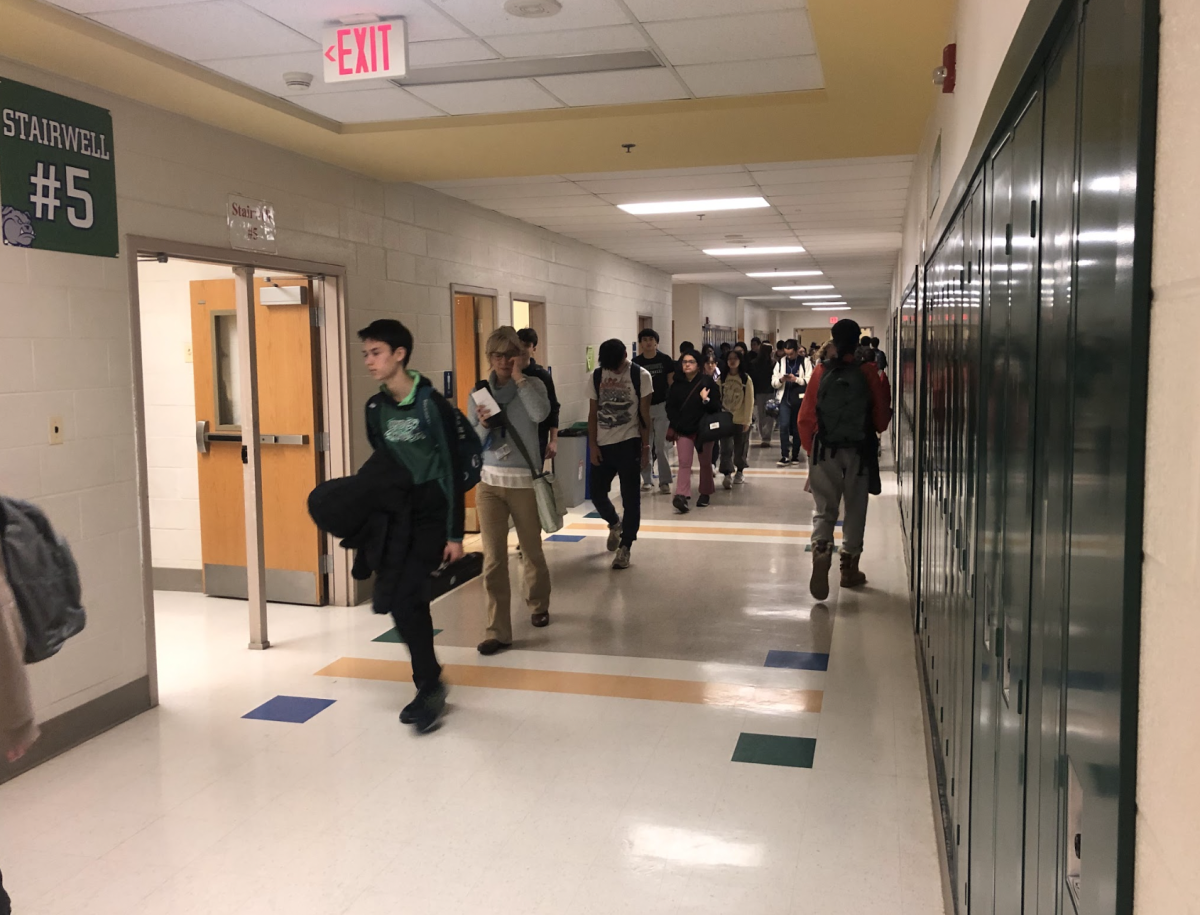Superintendent Joshua Starr recommended in October 2013 that MCPS push back high school start times, citing concerns over the lack of sleep teenagers are getting with the current bell schedule, later Starr encouraged MCPS to not move forward with his initial proposal.
Starr originally proposed that MCPS consider starting high school 50 minutes later, shifting middle school start times 10 minutes earlier, and extending the elementary school day by 30 minutes beginning in the 2015-16 school year. But according to a June 10 MCPS press statement, Starr’s proposal would have cost over $20 million and received mixed feedback from the MCPS community.
“I recommended we study changing bell times because I believe it is an important issue that deserves our attention,” Starr said in the statement. “But after receiving the final cost estimates, along with mixed feedback from our community, I do not believe it is feasible or responsible to move forward with these changes at this time. However, we will continue to discuss and monitor this issue.”
After Starr made his initial recommendation to change bell times, MCPS began gathering feedback from the community on the proposed changes. After four community forums, over 75,000 surveys, 77 “Neighbor-to-Neighbor” discussion groups and hundreds of emails sent to the MCPS bell times drop box, the county determined that the public was split on the issue and thus, in addition to its high costs, changing bell schedules was not appropriate at this time.
Start School Later Montgomery County (SSL), the local chapter of a nation-wide initiative to push back school start times, created an online petition to encourage county officials to change bell times in MCPS. The petition, which was presented to Starr in 2012, gained over 10,000 signatures and ultimately encouraged the county to pursue changing bell times. Now, less than than two years after submitting their petition to Starr, SSL is outraged at the Superintendent’s reversal.
Michael Rubinstein, publicity coordinator for SSL, says that by deciding against moving forward with his initial proposal, Starr is ignoring vast research that proves the need to start school later.
“The research on the benefits of a later high school start time is abundantly clear,” Rubinstein said. “Now, even the American Academy of Pediatricians strongly recommends later start times for the health and well-being of teenagers. We are facing an epidemic of teen sleep deprivation. The treatment is to start school later. How can anyone justify ignoring the research and recommendations?”
According to a June 10 SSL press statement, one of the main reasons Starr could not follow through with his initial proposal is that he tried to address two very different issues at one time.
“Dr. Starr made the mistake of cramming together two unrelated proposals — changing bell times and extending the elementary school day by 30 minutes,” SSL said in the statement. “Each issue needs to be judged on its own merits. In fact, much of the overall cost — and opposition — was generated by the proposal to extend the school day.”
Although a change in MCPS bell schedules seems unlikely in the near future, progress is being made at the state level to expedite the process.
On May 16, MD governor Martin O’Malley signed a bill that requires the state’s Department of Health and Mental Hygiene to conduct a study of morning bell times and make recommendations to school districts regarding appropriate school start times. While the initiative to start school later at the county level is stalled for now, legislation at the state level shows that this is an important issue for many and that officials will continue looking into it.
While county and state officials continue to push for a later school start time, senior Jessica Brown believes that there are other problems, such as overcrowded classrooms and aging schools, that MCPS should address before dedicating so much time and money to changing bell schedules,
“I think pushing back start times is an important issue, but it is not the most important issue,” senior Jessica Brown said. “There are many other problems affecting children and their lives right now. I think MCPS does a lot to help students as it is, so trying to eke out more benefits isn’t always possible.”
According to parent and AP Psychology teacher Rodney Van Tassell, starting school later is a good idea because students perform better in school when they are more awake, and performance on tests and quizzes and class participation are all substantially better later in the day as opposed to in first and second period.
While Van Tassell believes school start times should be pushed back, he understands that such a drastic change in school procedure is very difficult for the county to implement.
“It’s hard for us because we don’t have all the information,” Van Tassell said. “We don’t know all the factors that went into Dr. Starr’s decision. If it was solely up to me, I would’ve pushed start times back. But, again, I don’t know what he knows.”
Like Van Tassell, Principal Joan Benz says she understands the difficulties with Starr’s original proposal and why he was unable to implement it. While Benz supports the concept of pushing back start times and is glad that Starr did not completely close the door on a potential change, she acknowledges that pushing back start times is a complicated issue and not easily resolvable.
“I think it’s an issue that needs re-looking, but what is very difficult for Dr. Starr and the members of the Board of Education is that there are so many pressing issues and, unfortunately, a lot of them end up costing too much money,” Benz said. “I believe it could happen and I believe it can be successful, but it will take a lot of thought and good ideas to actually implement.”







